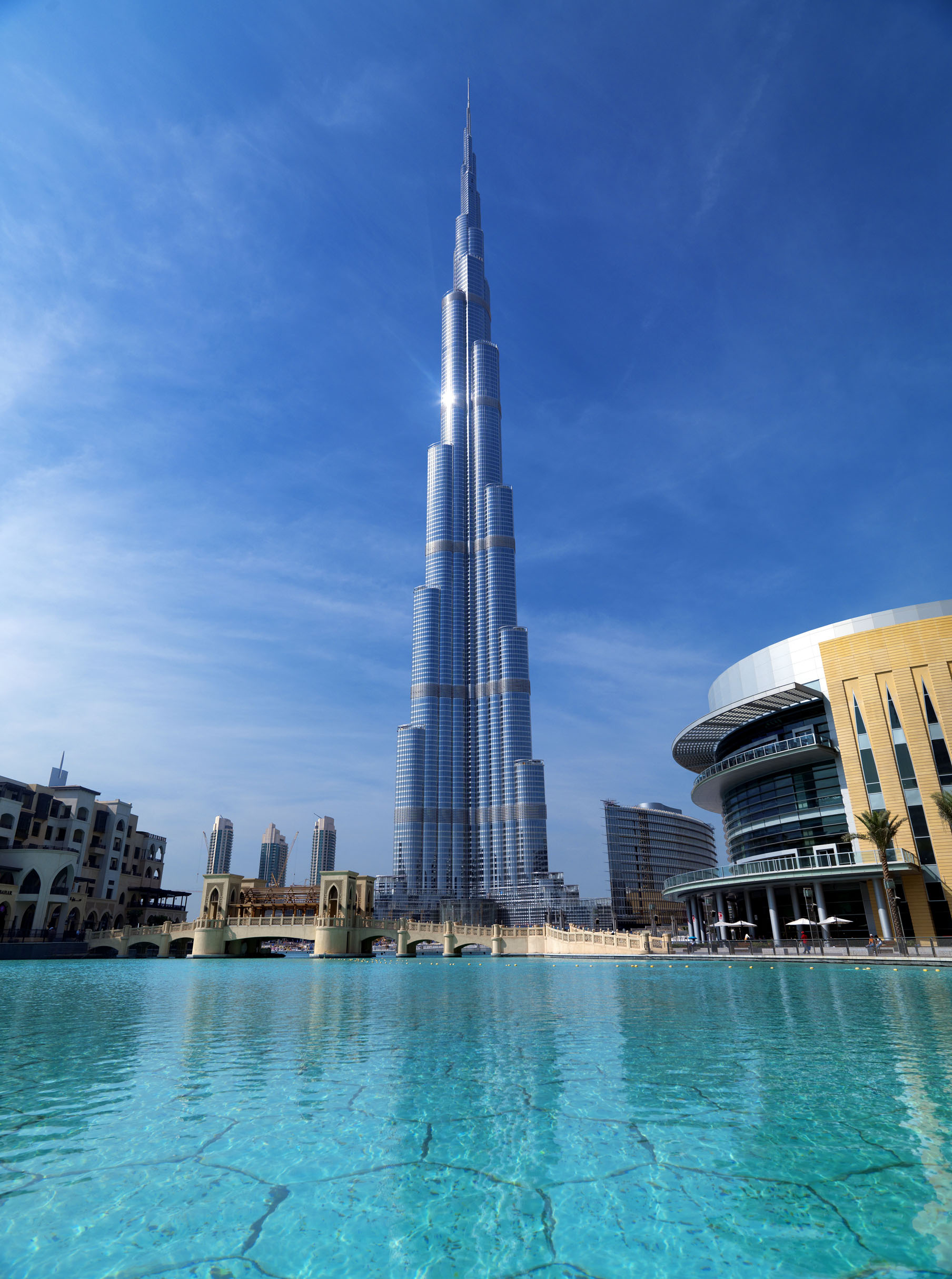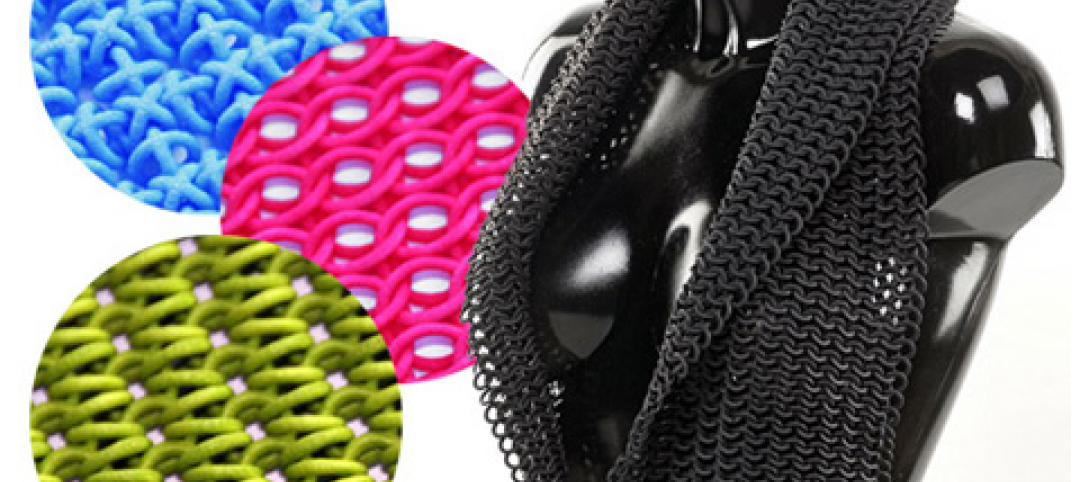The Burj Khalifa is part of an extraordinary 500 acre development called Downtown Dubai. The tower’s design is derived from patterning systems embodied in Islamic architecture, and also takes inspiration from the harmonious structure of the Hymenocallis plant, which is native to the region.
This iconic project breaks many records while overcoming the greatest of challenges and technical difficulties, not least of which are the wind forces dominating the structural design of the tower, the logistics of moving men and materials at extreme heights, and construction of the building envelope.
Addressing the environmental and technical challenges
As with any construction in the Middle East, Dow Corning’s technical experts were confronted with testing and specifying products that are able to withstand the rigors of high temperature, ultra-violet light, seismic activity and inclement weather conditions including sandstorms and high winds. In addition, large areas of the curtain wall, which in total is equivalent in size to 17 soccer fields, are positioned at extreme height, which in turn, brings a new set of technical challenges.
Key Participants
Adrian Smith, Skidmore, Owings & Merrill — Architect
Far East Aluminum, Hong Kong Arabian Aluminum, UAE — Structural Glazing Fabricators
White Aluminum, UAE — Insulating Glass Fabricator
Samsung Engineering & Construction — Main Contractor
Emaar Properties — Developer
Solving the pressure build-up problem
A total of 103,000 square meters of glass was used in the cladding panels, which are incorporated into a total facade area of 132,190 square meters. These advanced cladding panels maximize resistance against heat transmission from the sun and save energy through the use of sophisticated engineering techniques, which include high performance reflective glazing.
The unitized panels were interlocking on site and up to two stories tall. Being positioned at such high elevations, the risk of pressure buildup within the insulating glass units was alleviated through the design specification and Dow Corning 3362 Silicone Insulating Glass Sealant, was used as the secondary perimeter seal. Silicone application was carried out by White Aluminum Enterprise, who is a member of Dow Corning® Quality Bond—an initiative which provides technical training and support, designed to achieve excellence in quality control, quality assurance and standards of workmanship.
Products
Dow Corning 993 Silicone Structural Glazing Sealant
Dow Corning 3362 Silicone Insulating Glass Sealant
Dow Corning 798 Clean and Coldroom Silicone Sealant
In addition, Dow Corning 993 Silicone Structural Glazing Sealant was specified to bring additional secondary support of the insulating glass units, which were mechanically attached to the frame as the primary support. And, for sealing the exclusive bathrooms within the prestigious apartments, Dow Corning 798 Cold and Cleanroom Silicone Sealant was specified.
Click here to view a short animated presentation about how Dow Corning products and support helped Burj Khalifa become a reality.
Or, to learn more about the Dow Corning products featured in this case study, as well as the many other proven materials for the construction industry, please visit us here. To speak to your nearest Dow Corning representative, visit dowcorning.com/ContactUs. +
Related Stories
| Nov 15, 2010
Gilbane to acquire W.G. Mills, Inc.
Rhode Island-based Gilbane Building Company announced plans to acquire W.G. Mills, Inc., a construction management firm with operations based in Florida. The acquisition will dramatically strengthen Gilbane’s position in Florida’s growing market and complement its already established presence in the southeast.
| Nov 11, 2010
Saint-Gobain to make $80 million investment in SAGE Electrochromics
Saint-Gobain, one of the world’s largest glass and construction material manufacturers, is making a strategic equity investment in SAGE Electrochromics to make electronically tintable “dynamic glass” an affordable, mass-market product, ushering in a new era of energy-saving buildings.
| Nov 11, 2010
Saint-Gobain to make $80 million investment in SAGE Electrochromics
Saint-Gobain, one of the world’s largest glass and construction material manufacturers, is making a strategic equity investment in SAGE Electrochromics to make electronically tintable “dynamic glass” an affordable, mass-market product, ushering in a new era of energy-saving buildings.
| Nov 11, 2010
USGBC certifies more than 1 billion square feet of commercial space
This month, the total footprint of commercial projects certified under the U.S. Green Building Council’s LEED Green Building Rating System surpassed one billion square feet. Another six billion square feet of projects are registered and currently working toward LEED certification around the world. Since 2000, more than 36,000 commercial projects and 38,000 single-family homes have participated in LEED.
| Nov 10, 2010
$700 million plan to restore the National Mall
The National Mall—known as America’s front yard—is being targeted for a massive rehab and restoration that could cost as much as $700 million (it’s estimated that the Mall has $400 million in deferred maintenance alone). A few of the proposed projects: refurbishing the Grant Memorial, replacing the Capitol Reflecting Pool with a smaller pool or fountain, reconstructing the Constitution Gardens lake and constructing a multipurpose visitor center, and replacing the Sylvan Theater near the Washington Monument with a new multipurpose facility.
| Nov 9, 2010
Just how green is that college campus?
The College Sustainability Report Card 2011 evaluated colleges and universities in the U.S. and Canada with the 300 largest endowments—plus 22 others that asked to be included in the GreenReportCard.org study—on nine categories, including climate change, energy use, green building, and investment priorities. More than half (56%) earned a B or better, but 6% got a D. Can you guess which is the greenest of these: UC San Diego, Dickinson College, University of Calgary, and Dartmouth? Hint: The Red Devil has turned green.
| Nov 9, 2010
12 incredible objects being made with 3D printers today
BD+C has reported on how 3D printers are attracting the attention of AEC firms. Now you can see how other creative types are utilizing this fascinating printing technology. Among the printed items: King Tut’s remains, designer shoes, and the world’s smallest Rubik’s Cube.
| Nov 9, 2010
U.S. Army steps up requirements for greening building
Cool roofs, solar water heating, and advanced metering are among energy-efficiency elements that will have to be used in new permanent Army buildings in the U.S. and abroad starting in FY 2013. Designs for new construction and major renovations will incorporate sustainable design and development principles contained in ASHRAE 189.1.









